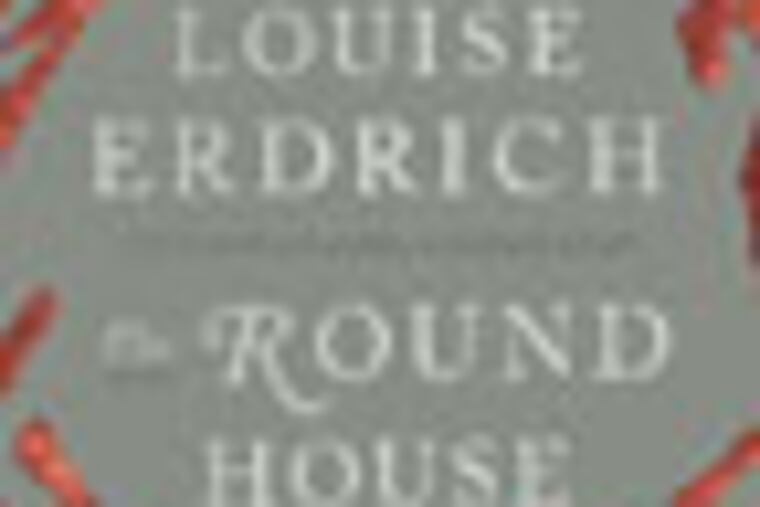13-year-old's search for a rapist
On the Ojibwe reservation in N.D., he asks what no one will voice, finds clues adults missed.

The Round House
By Louise Erdrich
Harper. 321 pp. $27.99
nolead ends nolead begins
Reviewed by Dawn Fallik
In Louise Erdrich's softly powerful novel The Round House, the search for a rapist clouds every page. It roots into the earth of a young boy, his parents, his community. Without even thinking, the reader becomes a vessel for that haunting as well, carting it around like a thunderbird egg, a black stone carried for a lifetime by the book's central character, Joe.
The burden is always there, sometimes heavy and unshakable. At other points, Erdrich leaves the violent attack as a background murmur as the characters move on with their daily lives, returning to their jobs, learning to flirt, fighting over swimming-hole rights.
The Round House, where the rape takes place, is an abandoned ceremonial house on the Ojibwe reservation in North Dakota. As Erdrich notes in her "Afterword," a 2009 report found that one in three American Indian women have reported being raped in their lifetime. In the book, it's 1988, and while the country's economy flourishes, the "rez" remains a place where hope glimmers seductively, just out of reach.
Erdrich, who will speak Thursday at the Free Library of Philadelphia, tells the story through Joe's 13-year-old eyes and ears, oddly penetrating and insightful. He asks the questions no one will voice and pushes until they are answered. He finds clues along paths that adults walked and missed.
Sometimes, this cognitive genius is a little hard to accept. He finds the gasoline can the rapist threw into a lake. He accepts a huge betrayal from a woman he admires with barely a flinch. These diversions ripple the waters of Erdrich's mystery, but they are just surface scars. Mostly, the reader eagerly follows Joe on his search, wanting to see justice served.
His parents do the same. His mother is a shadow herself, shattered by the act and - for most of the book - unable to fight for her own spirit. His father, a lawyer, suffers a heart attack. Joe witnesses their physical and emotional crashes. Importantly, he sees them battle back from weakness to strength.
Erdrich never shields the reader or Joe from the truth, and that saves the book from falling into the well-worn victim/savior territory. She writes simply, without flourish. Even deep thoughts are presented as direct truth, without much sense of wonderment.
"Always I kept going back to the day I dug the trees out of the foundation of the house," Joe tells us as the narrative winds to a close. "How tough those roots had clung. Maybe they pulled out the blocks that held our house up. How funny, strange, that a thing can grow so powerful even when planted in the wrong place."
The American Indian world is familiar territory for Erdrich, known for Beet Queen and Love Medicine, and a member of the Anishinaabe Nation.
During 2010-2011, as Erdrich worked on The Round House manuscript, she was diagnosed with breast cancer, a strong root in a very wrong place itself. In her notes, she mentions that Battlestar Galactica played a large part in her recovery process.
For Joe and his friends, it's Star Trek: The Next Generation. With a single word, they can fly out of their circumstances and into another world. Joe and his friends each want to be Worf, the Klingon, built mentally and physically to fight. They take as their own Worf's life's motto, "Today is a good day to die" - which he borrowed from the Lakota Nation.
Today comes for one of them (a fact revealed almost immediately in the novel, so no spoilers here). It's hard to separate the bleakness of his death from the bleakness of the rape and the bleakness of the reservation.
That's when the "thunderbird egg" that Joe carries feels like the only thing left to hold onto. Erdrich, for better or for worse, leaves it up to the reader to decide if that's enough.